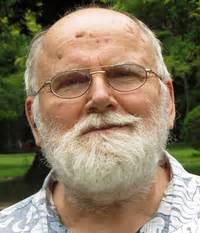A Quote by Clarissa Pinkola Estes
Long ago the word alone was treated as two words, all one. To be all one meant to be wholly one, to be in oneness, either essentially or temporarily. That is precisely the goal of solitude, to be all one.
Related Quotes
A writer who writes, ''I am alone''... can be considered rather comical. It is comical for a man to recognize his solitude by addressing a reader and by using methods that prevent the individual from being alone. The word alone is just as general as the word bread. To pronounce it is to summon to oneself the presence of everything the word excludes.
The reading of the word of God should be performed in solitude, in order that the whole mind of the reader might be plunged into the truths of the Holy Scripture, and that from this he might receive warmth, which in solitude produces tears; from these a man is wholly warmed and is filled with spiritual gifts, which rejoice the mind and heart more than any word.
As Aristotle wrote a long, long time ago, and I'm paraphrasing here, the goal is to avoid mediocrity by being prepared to try something and either failing miserably or triumphing grandly. Mediocrity is not about failing, and it's the opposite of doing. Mediocrity, in other words, is about not trying. The reason is achingly simple, and I know you've heard it a thousand times before: what doesn't kill you makes you stronger.
Every book is an image of solitude. It is a tangible object that one can pick up, put down, open, and close, and its words represent many months if not many years, of one man’s solitude, so that with each word one reads in a book one might say to himself that he is confronting a particle of that solitude
So you're in love with her?' she went on. A word again ... When the minds have learnt to mingle, when no thought is wholly one's own, and each has taken too much of the other ever to be entirely himself alone; when one has reached the beginning of seeing with a single eye, loving with a single heart, enjoying with a single joy; when there can be moments of identity and nothing is separate save bodies that long for one another ... When there is that, where is the word? There is only the inadequacy of the word that exists. 'We love one another,' I said.
Slowly blossomed, slowly ripened in Siddhartha the realisation, the knowledge, what wisdom actually was, what the goal of his long search was. It was nothing but a readiness of the soul, an ability, a secret art, to think every moment, while living his life, the thought of oneness, to be able to feel and inhale the oneness.
Words can mean different things to different people. It is important to understand what people mean when they use a certain word. Let's make an example. Take the word gay. Fifty years ago, gay meant exclusively cheerfulness, lighthearted excitement, merry or bright colors. Today this word has a different meaning. You won't call a cheerful person gay because it could be understood as something else.
In love, for example - the so-called love - we are 'related.' We appear to be related. We create the fallacy of a relationship, but in fact we are just deceiving ourselves. The two will remain two. Howsoever near, the two will remain two. Even in sexual communion they will be two. This two-ness, this duality will never last. So a relationship is only creating a fallacious oneness. It is not there. Oneness can never exist between two selves. Oneness can only exist between two no-selves.
Let him who cannot be alone beware of community... Let him who is not in community beware of being alone... Each by itself has profound perils and pitfalls. One who wants fellowship without solitude plunges into the void of words and feelings, and the one who seeks solitude without fellowship perishes in the abyss of vanity, self-infatuation and despair.
Rice and peas fit into that category of dishes where two ordinary foods, combined together, ignite a pleasure far beyond the capacity of either of its parts alone. Like rhubarb and strawberries, apple pie and cheese, roast pork and sage, the two tastes and textures meld together into the sort of subtle transcendental oneness that we once fantasized would be our experience when we finally found the ideal mate.
Conservative thinking is a very important part of Republican Party and the Republican Party is very important to the conservative movement. Since the 1960's, the polarization of the two parties and their alignment with essentially liberal and progressive and conservative thinking respectively is one of the big changes and it's made it really hard to separate those two out and so party and ideology are much more intertwined today than they were even 20 years ago, let alone 40 years ago.
I think if a writer is not endeavoring to expand and alter consciousness in himself and in his readers, he is not doing much of anything. It is precisely words, word lines, lines of words and images, and associations connected with these word and image lines in the brain, that keep you in present time, right where you are sitting now.







































